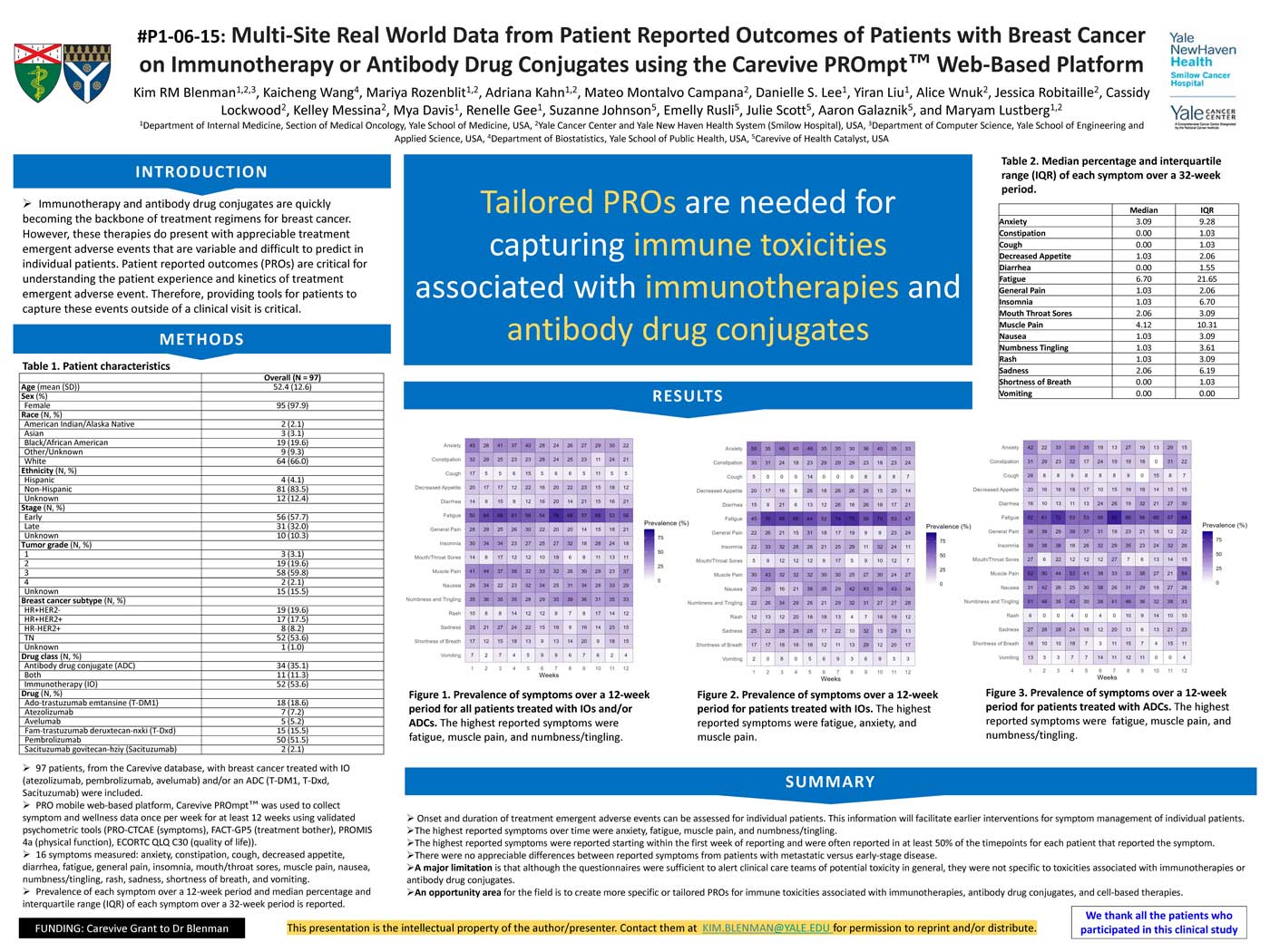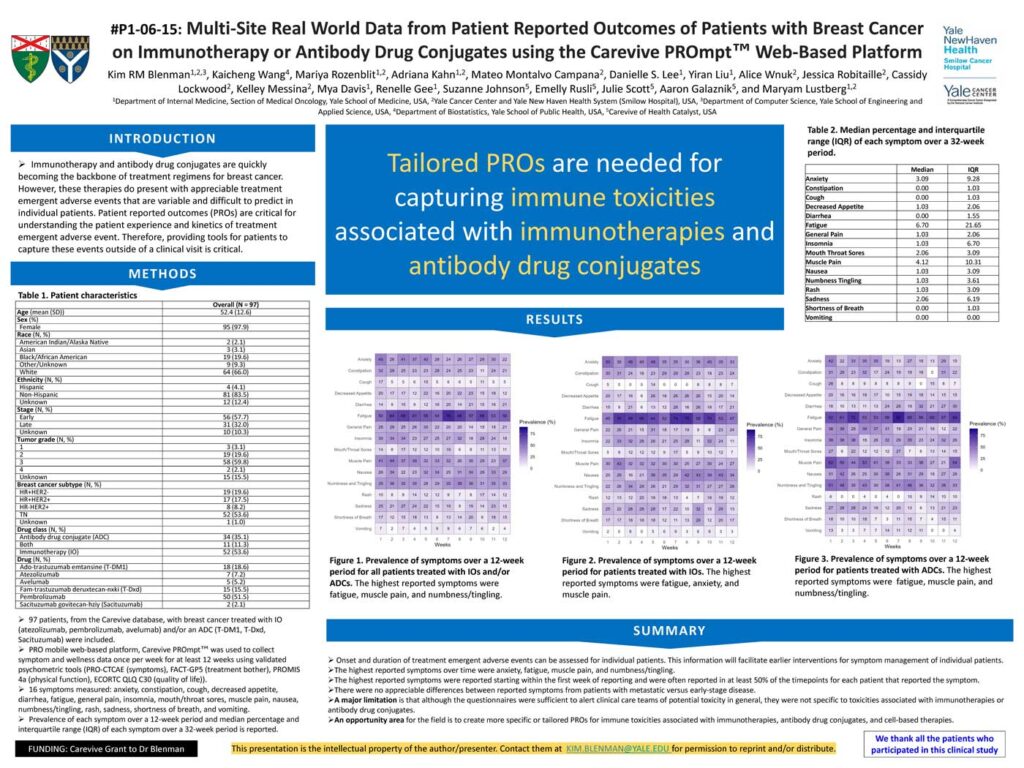
Authors: Kim RM Blenman1,2,3, Kaicheng Wang4, Mariya Rozenblit1,2, Adriana Kahn1,2, Mateo Montalvo Campana2, Danielle S. Lee1, Yiran Liu1, Alice Wnuk2, Jessica Robitaille2, Cassidy Lockwood2, Kelley Messina2, Mya Davis1, Renelle Gee1, Suzanne Johnson5, Emelly Rusli5, Julie Scott5, Aaron Galaznik5, and Maryam Lustberg1,2
1Department of Internal Medicine, Section of Medical Oncology, Yale School of Medicine, USA, 2Yale Cancer Center and Yale New Haven Health System (Smilow Hospital), USA, 3Department of Computer Science, Yale School of Engineering and Applied Science, USA, 4Department of Biostatistics, Yale School of Public Health, USA, 5Carevive of Health Catalyst, USA
Introduction
Immunotherapy and antibody drug conjugates are quickly becoming the backbone of treatment regimens for breast cancer. However, these therapies do present with appreciable treatment emergent adverse events that are variable and difficult to predict in individual patients. Patient reported outcomes (PROs) are critical for understanding the patient experience and kinetics of treatment emergent adverse event. Therefore, providing tools for patients to capture these events outside of a clinical visit is critical.
Methods
- 97 patients, from the Carevive database, with breast cancer treated with IO (atezolizumab, pembrolizumab, avelumab) and/or an ADC (T-DM1, T-Dxd, Sacituzumab) were included.
- PRO mobile web-based platform, Carevive PROmpt was used to collect symptom and wellness data once per week for at least 12 weeks using validated psychometric tools (PRO-CTCAE (symptoms), FACT-GP5 (treatment bother), PROMIS 4a (physical function), ECORTC QLQ C30 (quality of life)).
- 16 symptoms measured: anxiety, constipation, cough, decreased appetite, diarrhea, fatigue, general pain, insomnia, mouth/throat sores, muscle pain, nausea, numbness/tingling, rash, sadness, shortness of breath, and vomiting.
- Prevalence of each symptom over a 12-week period and median percentage and interquartile range (IQR) of each symptom over a 32-week period is reported.
Summary
- Onset and duration of treatment emergent adverse events can be assessed for individual patients. This information will facilitate earlier interventions for symptom management of individual patients.
- The highest reported symptoms over time were anxiety, fatigue, muscle pain, and numbness/tingling.
- The highest reported symptoms were reported starting within the first week of reporting and were often reported in at least 50% of the timepoints for each patient that reported the symptom.
- There were no appreciable differences between reported symptoms from patients with metastatic versus early-stage disease.
- A major limitation is that although the questionnaires were sufficient to alert clinical care teams of potential toxicity in general, they were not specific to toxicities associated with immunotherapies or antibody drug conjugates.
- An opportunity area for the field is to create more specific or tailored PROs for immune toxicities associated with immunotherapies, antibody drug conjugates, and cell-based therapies.

